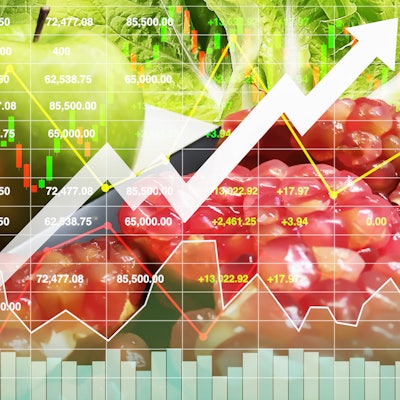
Environmental, social and governance (ESG) factors have become increasingly important in the food & beverage industry as businesses come under investor scrutiny and face mounting pressure from environmentally and socially conscious consumers, increased legislation, reputational risks, and other direct and indirect impacts to the bottom line.
In the M&A context, the pressure for ESG performance and transparency is resulting in modified behavior from buyers as they make determinations around deal selection, valuation and risk allocation. The results of a PwC survey showed that 37% of private equity respondents have turned down potential transactions due to ESG issues, and a report by Bain & Company indicated that 93% of limited partners would walk away from an investment if it posed an ESG concern.
Prioritizing ESG, however, has been difficult for many businesses. This is in part because many business leaders have traditionally viewed ESG from the lens of risk mitigation, or a cost incurred now to avoid greater negative consequences in the future. This may be especially true in the food & beverage industry, where business leaders see the significant cost required of investing in ESG. Ask any CEO of a traditional food & beverage company how much it would cost to reduce their use of plastics, and you are not likely to receive a warm response (don’t bother asking how much it would cost to eliminate plastic all together).
There is growing indication, however, that ESG can be used as a means of enhancing a firm’s value proposition. As Farzad Mukhi, managing director at Kroll and a member of its consumer, food, restaurant and retail M&A practice, put it, “strategics are in the early innings of enhancing their supply chains, formulations and brands in order to meet consumer expectations around ESG. As a result, private equity firms have prioritized ESG due to the increasing demands of their limited partners. Having a strong and proven ESG position offers companies a greater number of liquidity alternatives that could likely translate to higher valuations.”

Food & beverage companies going through an M&A process can expect buyers to do their diligence on ESG as they need to ensure that their potential targets will not only satisfy ESG market expectations at the time of acquisition, but can keep up with ESG trends as they evolve during their hold periods. To stay ahead of the curve, food & beverage firms should be assessing and proactively developing their ESG profiles and identifying effective ways of investing in ESG that will enhance their overall value.
Environmental
For an industry that accounts for a quarter of greenhouse gas emissions and 70% of freshwater withdrawal, the food & beverage industry inherently feels the pressure to improve their environmental and sustainability practices. Food & beverage companies need to look at their energy sources, disposal practices and environmental footprint as the push continues for a transition to lower carbon energy sources. Firms can generate cost and operating expense savings in the long run by incorporating new technologies and business practices that help meet energy efficiency goals and cut down on energy consumption and water intake.
By improving market reputation and perceptions on ESG issues, firms can also generate top line growth through entry into new markets and expansion in existing ones. A strong ESG profile can improve government and community relations and attract customers that are seeking sustainable products. Stonyfield, as an example, is able to resonate with environmentally conscious consumers and can tout how its commitment to sustainable practices and certified organic products sets it apart from others in the industry.
While pledges about sustainability and sourcing practices from behemoths like McCormick & Company’s Grown for Good campaign may generate significant opportunities, other firms that do not have the same sized balance sheets may need to look to innovative solutions to enhance their environmental and sustainability profile. New Belgium Brewing, the fourth largest craft brewery in the U.S. and a leader in sustainable practices, has taken creative steps to reduce emissions by, among other things, generating electricity from the wastewater collected on the brewery floor and repurposing heat from the brewing process.
Businesses should take stock of their particular situations and create a plan that fits their strengths. For businesses going through a sale process, even a proof of concept with a realistic plan for implementation may add value and enhance their sales pitch.
Regulatory
The food & beverage industry is already one of the most highly regulated industries in the U.S., where companies must ensure compliance with the Food Safety Modernization Act (“FSMA”), Good Manufacturing Practice (“cGMP”) regulations, and other regulations at the federal and state levels. Food & beverage companies need to keep a long-term view of how ESG may be shifting the regulatory landscape. There is already indication of a growing regulatory framework around sustainability on the international stage with the EU’s Food to Fork Strategy aimed at creating a fair and sustainable food system. In the U.S., the SEC is also considering ways to regulate ESG investing, which may impact how buyers may view potential targets.
We are still just at the beginning stages of ESG regulation. Staying on top of and anticipating the evolving regulatory regime can help reduce costs in the long term and avoid non-compliance risk. Failing to maintain compliance with food & beverage laws can result in fines, potential lawsuits and class actions, or even government-driven shutdowns. The current baby formula shortage in the U.S. caused, in part, by product recalls and health code violations demonstrates, unfortunately, the drastic consequences of regulatory noncompliance.
Moreover, by investing in ESG and adopting regulatory compliance programs, companies can further ward off future environmental issues and avoid stranded assets that fall out of compliance under an evolving regulatory landscape.
Governance
For management teams that will continue as a part of a company’s post-acquisition governance structure, they should be aware of key ESG governance factors and identify ways that can ease the post-closing transition and integration phase. A strong ESG profile requires financial and accounting transparency and honest financial reporting — and requires that the members of a company’s board be careful to avoid conflicts of interest. Many ESG investors focus on whether there is a diverse and inclusive board and whether there is diversity throughout the enterprise, and they may scrutinize executive compensation. Companies must design codes of business conduct that reflect a company’s core values and ensure that there are proper internal controls and oversight in place. This, in turn, helps develop strong habits within the broader organization.
Employee workforce
Maintaining a safe and healthy work environment requires ensuring the physical safety of employees, but it does not stop there. Employee training and education programs are key to providing opportunities for advancement and in meeting ESG goals. It is critical to ensure a workplace is in compliance with applicable labor and employment laws and to develop compliance programs. Potential buyers will look at the workforce and related labor practices as a part of their investment strategy and may be deterred by potential risks from poor compliance management.
A strong commitment to good labor practices will also serve the enterprise long-term by being able to recruit and retain top talent. A sense of purpose promoted by ESG ideals can motivate the workforce, while the opposite can drag productivity and, in the dramatic case, result in worker strikes and other labor actions. In this tight labor market, companies cannot afford to miss a step.
Conclusion
Private equity firms and strategic acquirers will be increasingly focused on integrating ESG factors into their investment criteria and strategies. Accordingly, food & Patrick Quine
Patrick Quine
Patrick Quine is an associate in the corporate practice group in the Dallas office of Sheppard Mullin.






















